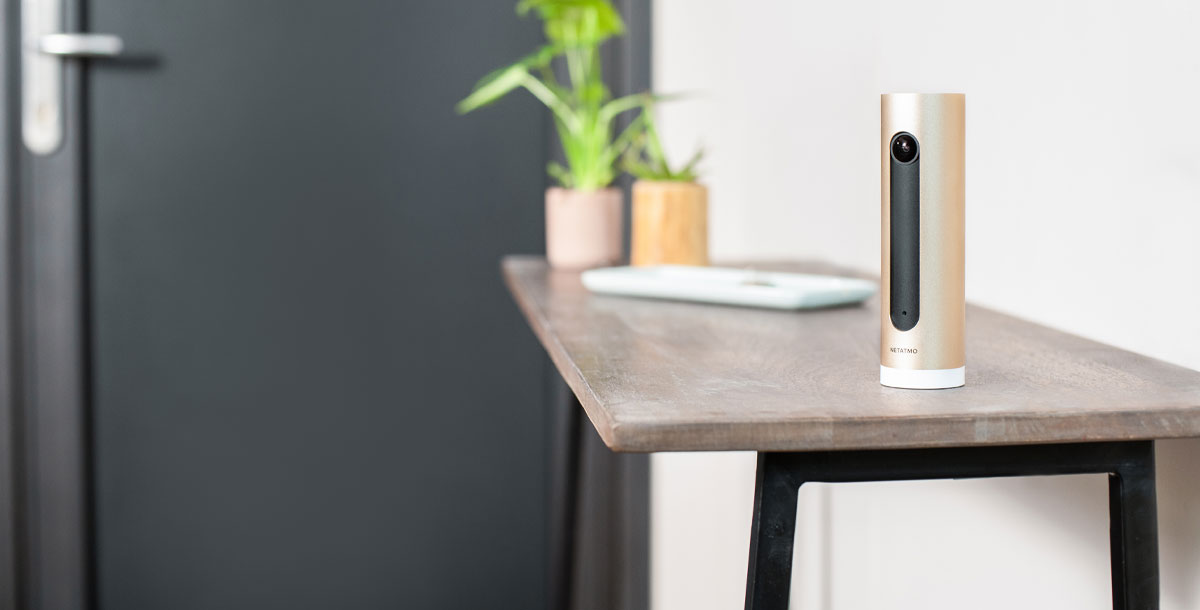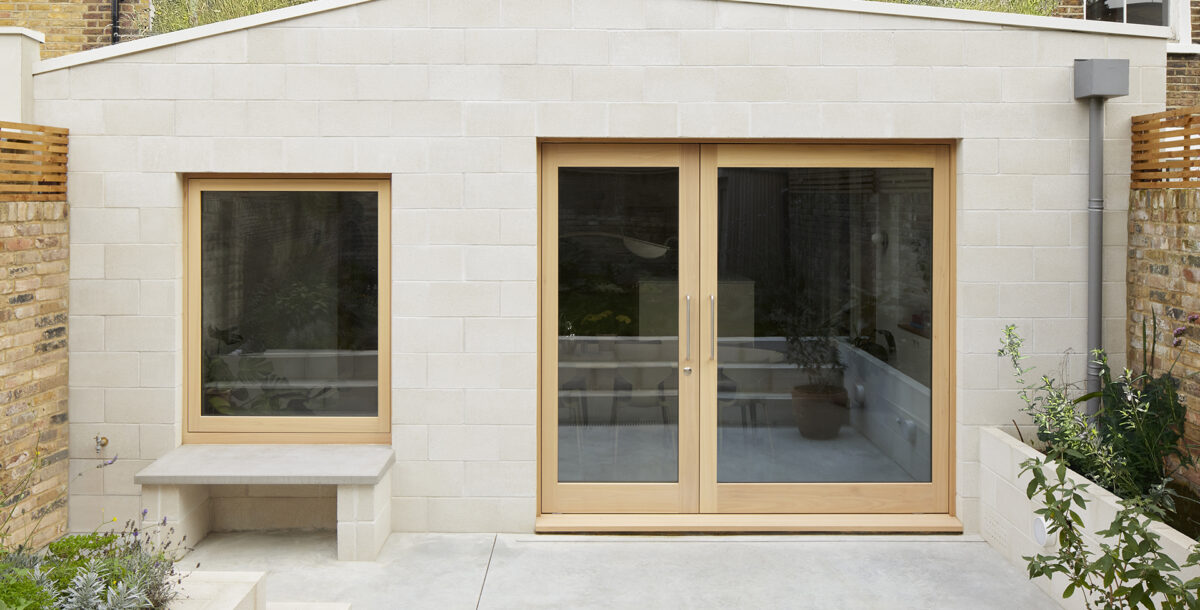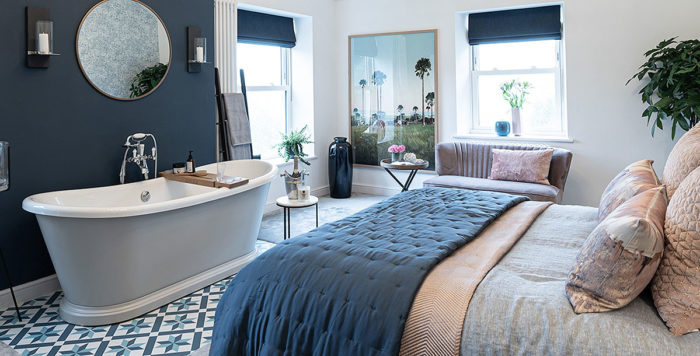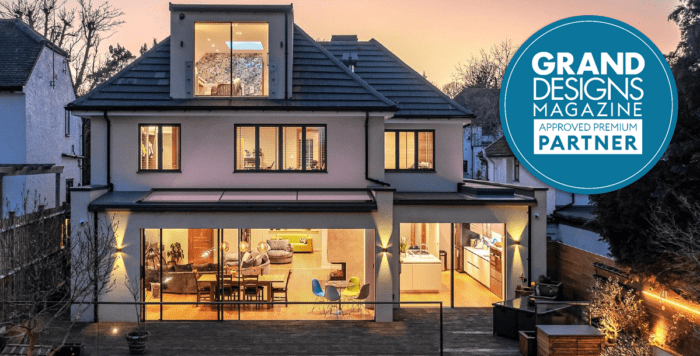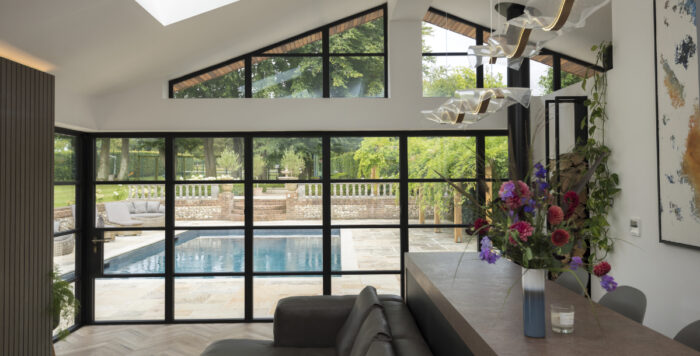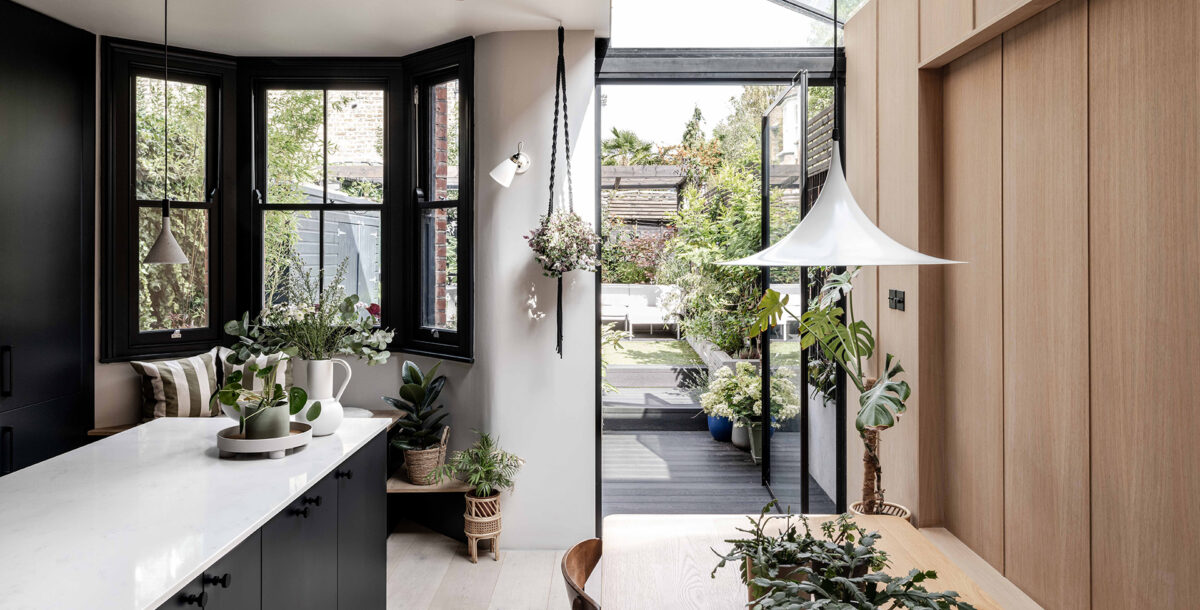Smart home security systems: a buyer’s guide
How to choose the best option for your home, from bespoke set-ups to off-the-shelf solutions
Installing a home security system used to be an expensive business involving specialist contractors, miles of cabling, ugly sensors and even less attractive CCTV cameras. But with the introduction of smart gadgets such as video doorbells and face-recognition cameras the industry has been transformed.
Nevertheless, there’s a difference between not missing a delivery due to a video doorbell and protecting your home from criminals. According to the Office for National Statistics, burglaries cost the homeowner an average of £3,030, so keeping your property safe has never been more important.
Bespoke home security
Your security needs depend on the size of your home and budget. Few installers would recommend the same system for a mid-terrace house and a rural home with land.
‘A professionally installed system can consist of a few entrance sensors and an alarm, through to something with comprehensive CCTV coverage,’ says Kevin Spencer, head of product management at Yale UK. ‘It’s even possible to have thermal imaging, biometric locks, silent alarms, flood and fire alarms, and perimeter detection.’
You’re less likely to become a victim of burglary if you have a well-fitted alarm system. The first choice to make is between a non-interactive siren-only alarm or a dialler model that contacts someone when triggered. As well as sounding an alarm, diallers can send an alert in different ways. You might message your smartphone, contact a nominated keyholder, or notify a monitoring service, which will visit your home to check for issues.
Monitoring is provided on subscription through companies such as ADT. Its range of products include 24/7 monitoring, police response, smart-style cameras and doorbells. These are set up to adapt to your everyday habits. To avoid false alarms, two indicators inside the house, such as a door sensor and a motion sensor, must both trigger for the police to visit.
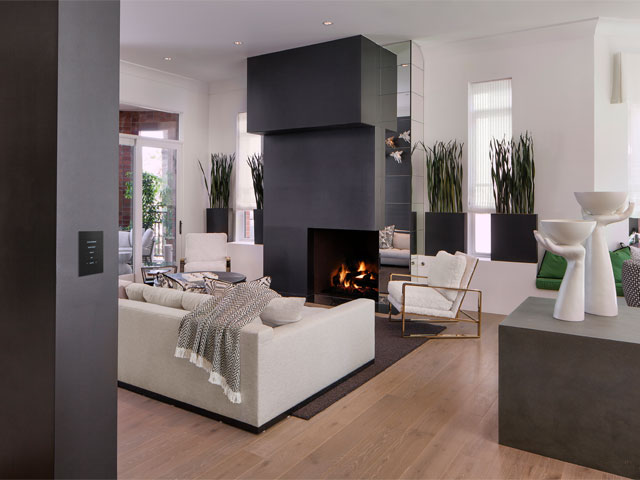
With a bespoke Crestron control system every aspect of your home’s security can be controlled from a keypad that can be wall mounted. £POA. Photo: Crestron
NSI-approved installers
Before smart gadgets were available, home security was the preserve of big companies, with brands such as Yale, Veritas and ADT offering turn-key solutions and installation.
These leading brands are still around, along with countless local and national installers, and home-automation specialists that also cover security. Ensure you get the most reliable service by choosing a firm that is National Security Inspectorate (NSI) approved. These companies are qualified to design, install and maintain alarms to professional industry, police and insurer-recognised standards.
Following installation, they will issue you with a certificate of compliance and apply for alarm monitoring, police or keyholding response, if applicable to your choice of system. For a list of NSI-approved security contractors, see nsi.org.uk/company-finder.
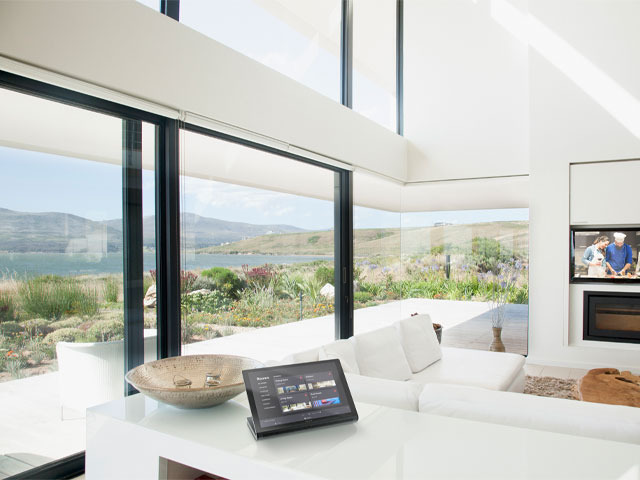
A Crestron custom installation enables you to operate smart appliances as well as your security features from a table top touch screen. £POA. Photo: Crestron
Plug-in protection
Brands such as Nest, Ring, Hive and Arlo offer a range of sensors, high-definition cameras, floodlights and doorbells, as well as intruder, flood and fire alarms. All of these are designed for simple wireless installation and smartphone control.
The gadgets you choose are linked together via a hub, which is connected to your broadband router. When someone opens a window or door, or walks past a sensor, you receive an alert on your mobile. And if they stray into a camera’s field of vision, you’ll receive either a picture or short video clip. Some systems will sound an alarm or contact the emergency services, and many also enable you to talk through the camera.
Most products will connect to voice control speakers such as Alexa, Google Assistant or Siri, so you can ask, ‘Hey Google, who’s at the front door?’
Brands such as Ring and Simplisafe are on a par with professional systems because they include assisted monitoring service subscriptions.
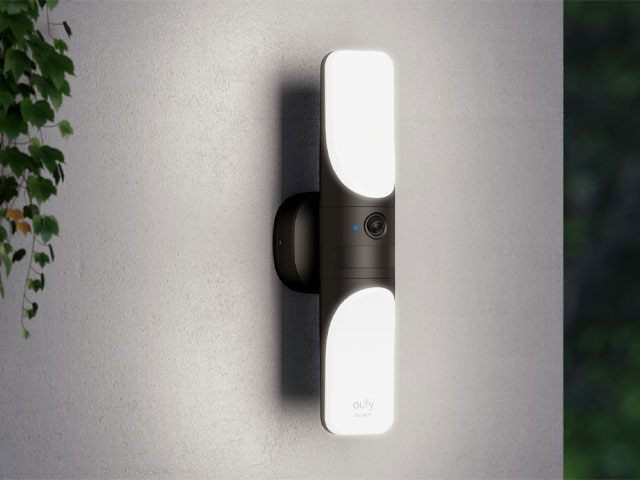
Monitor approaching visitors with this outdoor light with 2K HD camera and two way audio. Wired wall light cam, £POA. Eufy
Automated blinds and smart lighting
Set up home automation gadgets to mimic your family’s movements throughout the day and night. This enhances the protection of plug-in security products.
This is done by linking Wi-Fi-connected, app-controlled lighting from the likes of Lutron, Innr, Hue or Hey, automated blinds and curtains from brands such as Somfy and Crestron, and interactive audio speakers including Alexa and Sonos.
‘As a burglar, which would you prefer – the house with one motion-sensitive spotlight, or the one that looks lived in?’ says Jeroen Dalderop, founder of smart lighting brand Innr.
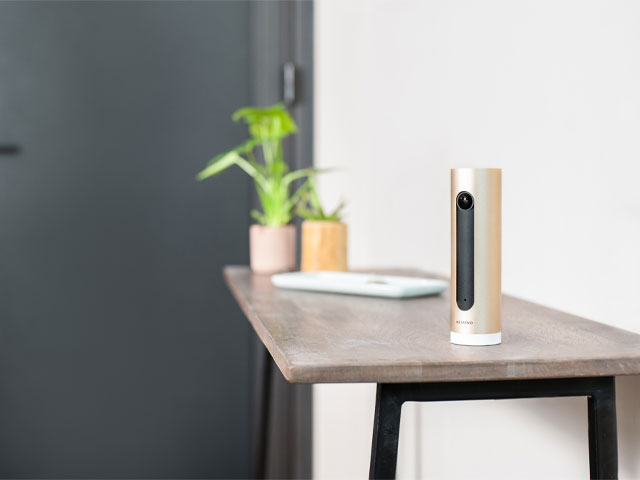
This camera alerts you instantly when an unfamiliar face is spotted inside your home. Smart indoor camera £179 from Netatmo. Photo: Netatmo
How much does home security cost?
In 2023, For around £250 you can buy a basic system with camera, hub, alarm and maybe a door or window sensor. But to secure an entire house you’ll need to budget for multiple sensors, from £20 each, and cameras, from £50.
Ensure the products are compatible to avoid the need for multiple apps. An alarm installation costs from £500 for a siren- only sensor set-up. But depending on your needs you could spend thousands on a bespoke system. A monthly monitoring subscription starts from £3 per month, rising to around £25 with police response.
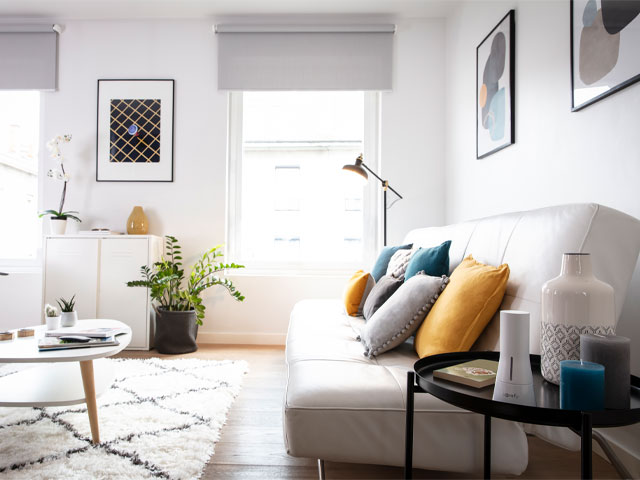
Make it look like somebody’s always home with all-in-one motion detection cameras, alarms and sensors, plus curtain and blind controllers. £POA by Somfy. Photo: Somfy
Why you need a smart lock
The benefits of hi-tech entry systems from Phillip Pini, director of residential sales UK for TIG
- You’ll never need to remember your keys again with a smart lock or keyless entry system. Depending on the model you choose, if you have your mobile, code or fingerprint, you can let yourself in.
- Some designs are easier to fit on doors with multi-point locking systems.
- You won’t need spare keys. For instance, you can let the dog walker in by texting them a pass code that’s valid for specific days only.
- A model that features geofencing technology creates a perimeter around your home, so it knows when you’ve left and can lock the door automatically.
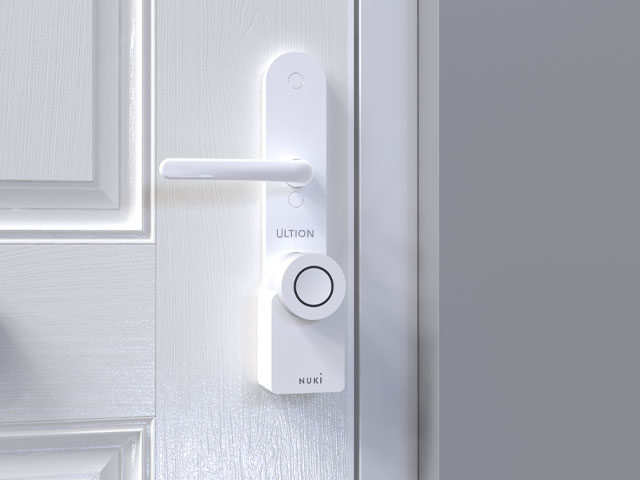
A front door lock that unlocks as you approach and locks a few minutes later. Nuki 3.0 from £239. Photo: Ultion

